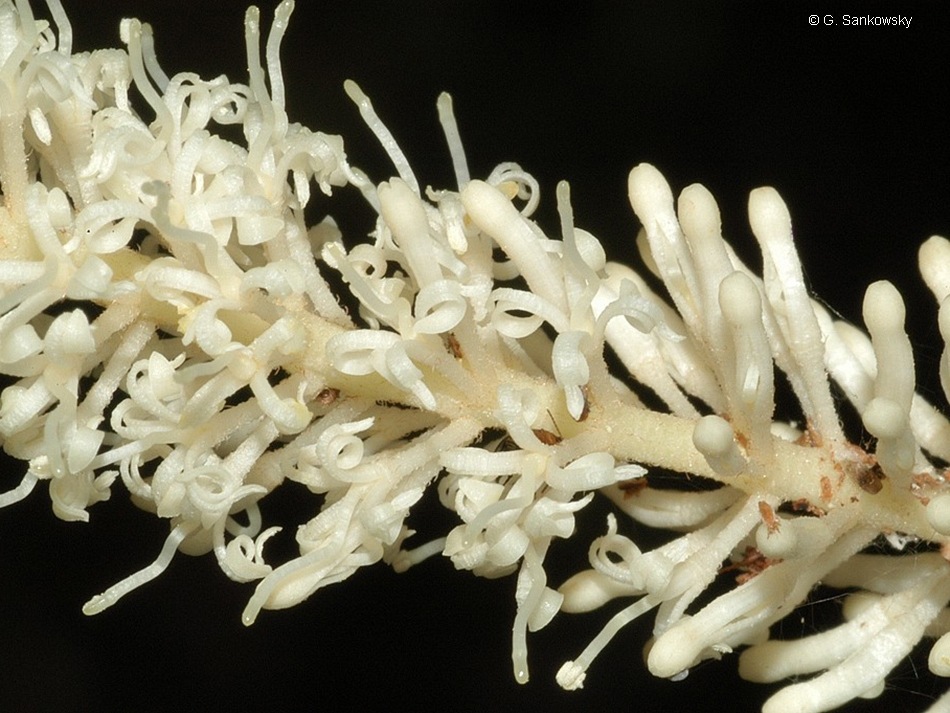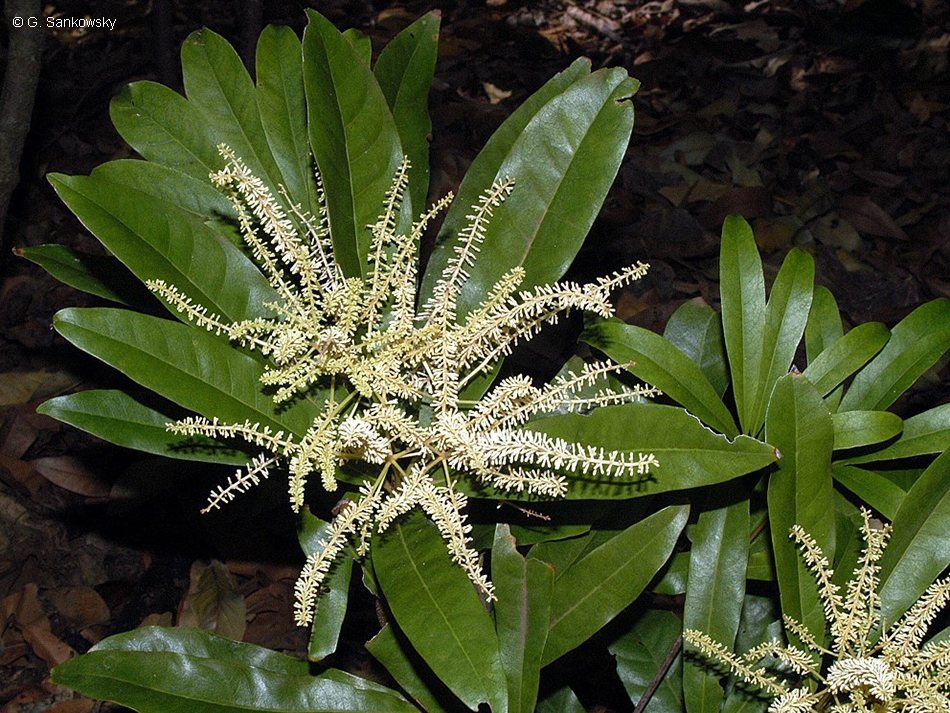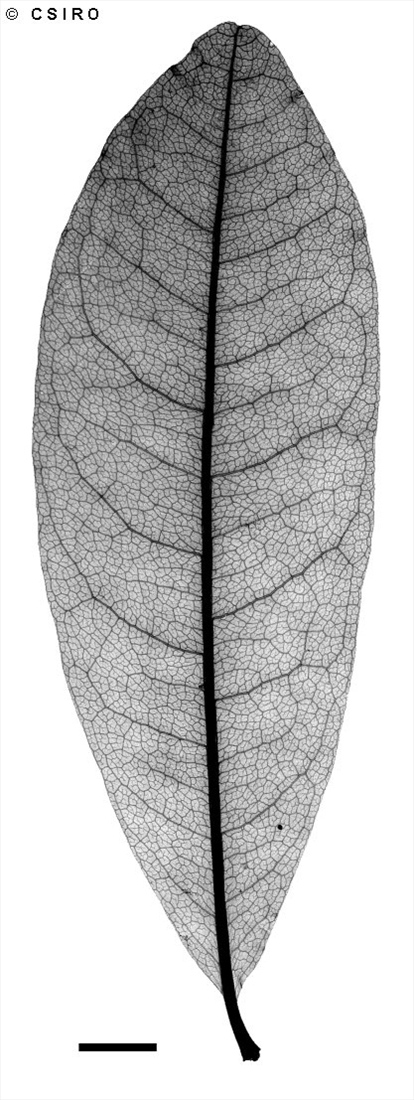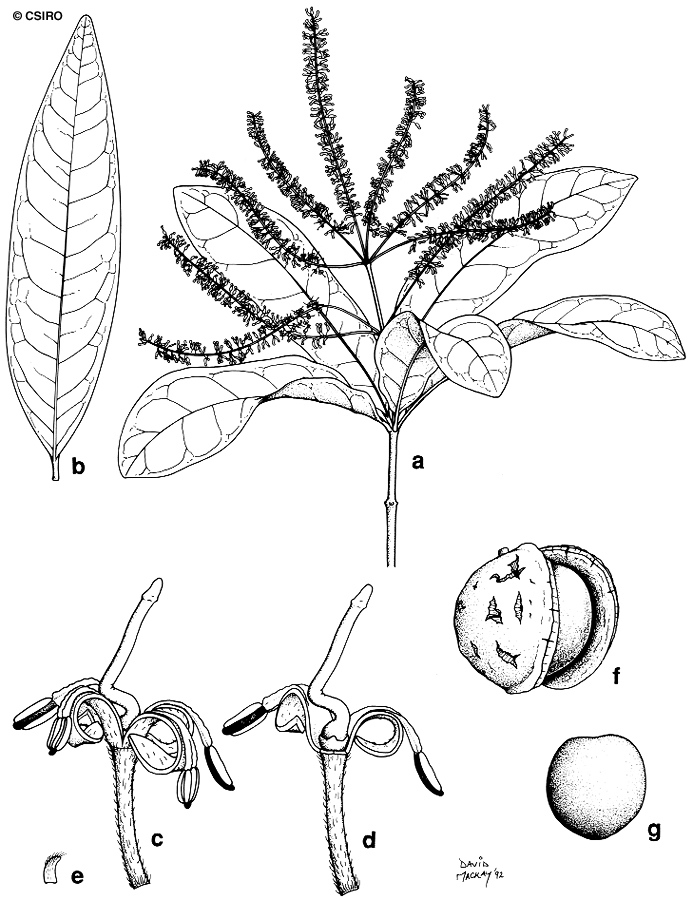Australian Tropical Rainforest Plants - Online edition
Lasjia grandis (C.L.Gross & B.Hyland) P.H.Weston & A.R.Mast
Click/tap on images to enlarge

Flowers [not vouchered]. © G. Sankowsky

Leaves and flowers [not vouchered]. © G. Sankowsky

Scale bar 10mm. © CSIRO

© CSIRO

10th leaf stage. © CSIRO

Cotyledon stage, hypogeal germination. © CSIRO
Family
Mast, A.R., Willis, C.L., Jones, E.H., Downs, K.M. & Weston, P.H. (2008) American Journal of Botany 95(7): 865.
Common name
Satin Silky Oak; Oak, Satin Silky
Stem
Oak grain in the wood and a corresponding pattern in the inner blaze.
Leaves
Oak grain in the twigs. Leaves in whorls of 3-6. Leaf blades about 8-23 x 2-6 cm. Terminal buds densely clothed in rusty brown hairs. Small, pale lenticels usually conspicuous on the twigs.
Flowers
Fruit
Seedlings
Distribution and Ecology
Synonyms
Macadamia grandis C.L.Gross & B.Hyland, Australian Systematic Botany 6(4): 347(1993), Type: Queensland, State Forest Reserve 755, Barong LA [Logging Area], Gray 1586, 12 xii 1979, (holo: QRS; iso: NSW).
RFK Code
422
Copyright © CSIRO 2020, all rights reserved.

Web edition hosted at https://apps.lucidcentral.org/rainforest




